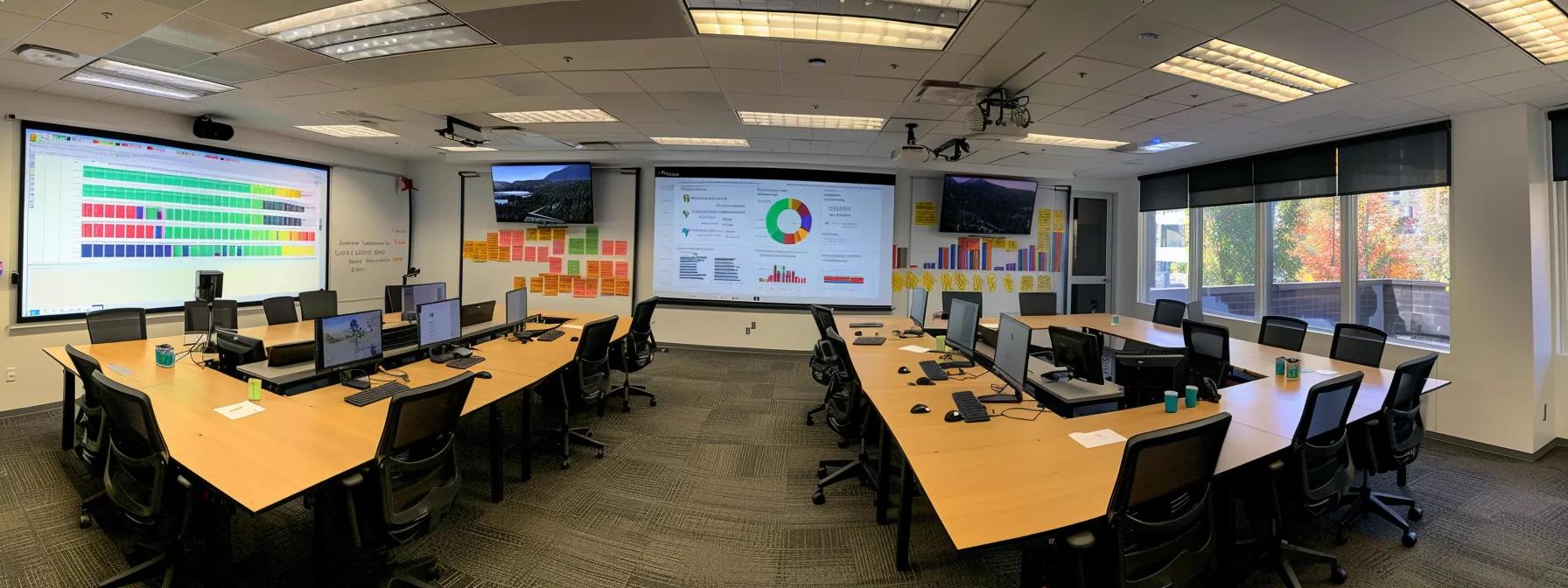Crafting effective brand positioning strategies is essential for construction firms aiming to stand out in a crowded marketplace. Many companies struggle with articulating their unique value propositions, leading to missed opportunities for customer engagement. This article will explore how to identify your distinct advantages, analyze competitors, and tailor messaging for your target audience. By focusing on these areas, construction marketing consultants can enhance customer experience and loyalty, ultimately aligning with your mission statement. Engage with this content to address the challenges of brand positioning and set your firm up for success in a competitive environment.
Key Takeaways for Effective Brand Positioning in Construction Firms
- Effective brand positioning differentiates construction firms in a crowded market
- A unique value proposition addresses client needs and expectations
- Analyzing competitors helps refine brand messaging and strategies
- Consistent visual branding enhances recognition and trust among potential clients
- Engaging clients through feedback strengthens brandloyalty and reputation
Understanding the Importance of Brand Positioning for Construction Firms

Brand positioning plays a crucial role for construction firms in North America, as it directly affects brand awareness and client perception. By establishing a clear and distinct identity, firms can differentiate themselves from competitors in a crowded market, ensuring that potential clients recognize their value in a complex supply chain.
Effective brand positioning strategies incorporate modern elements, such as web design, to enhance user experience and engagement. A well-designed website not only showcases a firm’s portfolio but also communicates core values, helping to build trust with clients and stakeholders across various sectors, including higher education.
Ultimately, a strong brand position fosters long-term relationships with clients by consistently delivering on promises and expectations. This alignment of brand identity and client needs is essential for construction firms looking to navigate market challenges and sustain a competitive edge in a dynamic environment.
Brand positioning lays the groundwork for success in the construction industry. Next, it is time to uncover what sets a firm apart and defines its unique value proposition.
Identifying Your Unique Value Proposition in the Construction Industry

Identifying a unique value proposition is essential for construction firms aiming to stand out in a competitive landscape. This involves articulating specific strengths, such as expertise in sustainability practices, which resonate with customers who prioritize eco-friendly solutions in commercial construction projects.
A well-defined value proposition not only highlights what distinguishes a firm from its competitors, but also addresses the needs and expectations of potential clients. By emphasizing aspects like timely project delivery and high-quality workmanship, construction firms can effectively enhance their brand positioning in the market.
Furthermore, integrating sustainability into the core message fosters a strong connection with environmentally conscious customers. This alignment not only boosts brandreputation but also positions the firm as a leader in the evolving commercial construction industry, ultimately paving the way for long-lasting client relationships.
Understanding what sets a business apart is only the beginning. To truly stand strong, one must examine the competition and learn how to carve out a distinct place in the market.
Analyzing Your Competitors to Strengthen Brand Positioning

Analyzing competitors is essential for construction firms to enhance their brand positioning in a saturated market. Firms can assess competitors’ marketing strategies to identify gaps in their own offerings, especially regarding pricing models and client engagement tactics.
Understanding the strengths and weaknesses of rival companies provides valuable knowledge that helps differentiate a firm’s brand. By focusing on unique attributes, such as exceptional accounting practices or innovative project management, construction firms can refine their messaging and approach.
Moreover, evaluating competitors allows firms to adjust their marketing strategies to better align with market demands. Through careful analysis, construction firms can strengthen their brand presence and effectively attract target clients:
| Competitor | Strengths | Weaknesses |
|---|---|---|
| Competitor A | Strong project delivery | High price point |
| Competitor B | Innovative marketing strategy | Poor customer support |
| Competitor C | Experienced team | Lack of sustainability focus |
After assessing the competition, it becomes clear that success hinges on how well one speaks to the audience. Shaping the message for those ears can forge a deeper connection and spark true engagement.
Tailoring Your Messaging for Target Audience Engagement

Crafting targeted messaging requires a clear understanding of the audience’s methodology for decision-making. Construction firms must identify the values and priorities of their potential clients, emphasizing the aspects that resonate most with each demographic. This approach ensures that the messaging is not only relevant but also impactful.
Employing storytelling techniques can significantly enhance audience engagement by creating emotional connections. By sharing compelling narratives about past projects and the challenges overcome, firms can illustrate their capabilities and foster a sense of trust. This emotional appeal reinforces the firm’s reliability and commitment to meeting client needs.
Additionally, understandingcustomerbehavior plays a vital role in shaping effective brand messaging. Construction firms should analyze how their target audience interacts with content and make adjustments accordingly. This insight allows firms to tailor their communication strategies, reinforcing their brand positioning and attracting more clients in a competitive market.
The right words draw people in, but images seal the bond. Next, the focus shifts to how visual branding can make a lasting impression.
Implementing Visual Branding Elements for Recognition

Visual branding elements play a significant role in strengthening the positioning of construction firms within a competitive landscape. By utilizing consistent logos, color schemes, and design elements, construction marketing consultants help firms create a recognizable identity that enhances their proposition and builds trust among clients. This recognition contributes to a positive perception of the firm’s net worth and reliability in delivering projects effectively.
Incorporating visuals in content marketing strategies is essential for engaging potential clients and effectively communicating the brand‘s message. High-quality images and videos showcasing completed projects can showcase a firm’s capabilities while addressing any perceived risks associated with construction endeavors. This approach not only promotes the brand but also reinforces the firm’s commitment to quality and expertise.
A strong visual identity can help differentiate firms in a crowded market, making it easier for clients to recall their brand when evaluating options. By aligning visual elements with the overall brand positioning and unique value proposition, construction firms can better connect with their target audience, enhancing their appeal and increasing the likelihood of attracting new clients.
Visual branding creates a strong identity that people recognize. To build on this, a well-rounded marketing strategy is essential to ensure the brand‘s message resonates deeper.
Developing an Integrated Marketing Strategy to Support Brand Positioning

Utilizing social media effectively enhances brand presence and engagement for construction firms, creating a platform for interaction with potential clients. Crafting content that resonates with construction clients requires an understanding of their needs and preferences, ensuring alignment with the firm’s business model. Additionally, leveraging SEO improves visibility in search results, providing essential intelligence that supports informed decision-making.
This approach not only emphasizes the significance of qualitative research in understanding market dynamics but also highlights the importance of consistent messaging across various channels. Each aspect plays a fundamental role in developing a cohesive brand positioningstrategy.
Utilizing Social Media for Brand Presence and Engagement
Utilizing social media effectively allows construction firms to elevate their brand presence and cultivate engagement, thereby reinforcing their value proposition. By sharing testimonials, project milestones, and industry insights, firms can build a positive reputation and demonstrate their wealth of expertise to potential clients. This ongoing interaction not only enhances brandvisibility but also fosters trust, ultimately leading to a stronger connection that can result in more secured contracts.
Creating Content That Resonates With Construction Clients
Creating compelling content that resonates with construction clients involves understanding their unique needs and decision-making processes. Construction firms should focus on showcasing successful projects through detailed case studies that not only illustrate how an asset is developed but also highlight the efficient use of cash and resources. Engaging potential clients with data-driven research and insights aligned with the firm’s brandstrategy can effectively demonstrate expertise and establish credibility in the industry.
- Understand client needs and decision-making processes.
- Showcase successful projects through detailed case studies.
- Highlight efficient use of asset and cash resources.
- Incorporate data-driven research and insights.
- Align content with the firm’s brandstrategy.
Leveraging SEO to Improve Visibility in Search Results
Leveraging SEO as part of an organization’s marketing strategy is essential for improving visibility in search results and enhancing brandreputation. By optimizing web content to reflect relevant narratives and innovations in the construction sector, firms can significantly improve their online presence. Incorporating targeted keywords and high-quality content tailored to potential clients’ needs allows construction firms to connect more effectively with their audience, ultimately leading to increased client engagement and loyalty.
A strong strategy guides a brand‘s voice and reflects its true essence. Next, it becomes essential to assess how well that voice resonates in the market.
Measuring the Effectiveness of Your Brand Positioning Strategy

Measuring the effectiveness of brand positioning strategies in construction involves gathering feedback from clients and stakeholders to assess brandloyalty and satisfaction. Examining key performance indicators such as market segmentation and creativity in architecture provides insight into success levels. Additionally, adjusting strategies based on evolving market trends and client needs ensures relevance and sustained competitiveness in the industry.
Gathering Feedback From Clients and Stakeholders
Gathering feedback from clients and stakeholders is essential for construction firms seeking to measure the effectiveness of their brand positioning strategies. This process can involve utilizing survey tools on company websites, engaging through social media marketing platforms, and leveraging marketing communications to connect with the target audience. By understanding client perspectives, including income and project satisfaction, firms can refine their offerings and enhance overall brandperception, ensuring alignment with market demands and expectations.
Examining Key Performance Indicators for Success
Examining key performance indicators (KPIs) is fundamental for construction firms aiming to measure the success of their brand positioning strategies. By focusing on metrics such as employment rates, market share, and customer satisfaction, firms can gain valuable insights into their overall performance within the industry. Conducting thorough market research can reveal how user experience impacts client retention and engagement, helping to refine strategies for sustained growth.
- Monitor employment rates to assess operational effectiveness.
- Analyze market share to understand competitive standing.
- Evaluate customer satisfaction to enhance service quality.
- Conduct market research to inform decision-making.
- Focus on user experience to foster client loyalty.
Adjusting Strategies Based on Market Trends and Client Needs
Adjusting strategies based on market trends and client needs is fundamental for construction firms aiming to maintain a competitive advantage. By understanding shifts in consumerperception and the evolving demands within the industry, firms can refine their strategic planning to better align with client expectations. For instance, staying attuned to trends related to sustainability can enable firms to enhance their service offerings, which not only meets consumer demand but also strengthens their overall brand positioning.
Measuring the effectiveness of a brand positioningstrategy reveals where a brand stands. Yet, true strength lies in building long-term relationships that deepen that position in the minds of consumers.
Building Long-Term Relationships to Reinforce Brand Position

Engaging with clients through follow-up surveys and consistent communication is vital for construction firms aiming to build long-term relationships that enhance their brand position. Establishing community involvement and corporate social responsibility initiatives further strengthens connections, opening avenues for fundraising and collaboration that can attract potential buyers. These strategies collectively reinforce the firm’s reputation in providing professional services while maximizing profit.
Engaging With Clients Through Follow-Up Surveys and Communication
Engaging with clients through follow-up surveys and communication is critical for construction firms aiming to reinforce their brand position. By gathering feedback, firms can enhance their visibility and obtain competitive intelligence that informs future strategies. Regular interactions about project outcomes not only foster a sense of connection but also demonstrate leadership by responding to client needs, ultimately enhancing overall satisfaction and loyalty. This proactive approach creates an energy around the brand that can lead to consistent referrals and a strong reputation within the industry.
Establishing Community Involvement and Corporate Social Responsibility
Establishing community involvement and emphasizing corporate social responsibility are vital components for construction firms aiming to strengthen their brand position. By participating in local initiatives, such as building affordable housing or supporting educational programs, firms can demonstrate their commitment to the community and enhance their reputation. This not only fosters goodwill but also creates connections that lead to long-term relationships with clients who value socially responsible practices, ultimately reinforcing the firm’s brand identity in the construction industry.
Building lasting connections strengthens a brand’s place in the market. The next section highlights real examples from construction firms that have achieved success through effective positioning.
Case Studies of Successful Brand Positioning in Construction Firms

One notable example of effective brand positioning in the construction industry is Turner Construction Company. By emphasizing its commitment to safety and innovation, Turner has differentiated itself in a competitive market. Their strategic initiatives focus on incorporating advanced technologies into project management, enhancing efficiency while building trust with stakeholders.
Another example is Skanska, which has established a strong brand presence through its dedication to sustainability. By positioning itself as a leader in green construction practices, Skanska attracts eco-conscious clients and partners. Through clear messaging and a focus on sustainable project delivery, the firm reinforces its market identity while addressing the growing demand for environmentally responsible construction solutions.
Lastly, Mortenson Construction successfully showcases its community involvement as a core aspect of its brand positioning. By actively participating in local initiatives and emphasizing corporate social responsibility, Mortenson builds strong relationships with clients and communities alike. This commitment not only enhances the firm’s reputation but also strengthens client loyalty and brand recognition in the construction sector.
Conclusion
Crafting effective brand positioning strategies is essential for construction firms aiming to thrive in a competitive market. By clearly defining their unique value proposition and leveraging modern marketing techniques, firms can enhance client engagement and build long-term relationships. Understanding competitor strengths, tailoring messaging, and maintaining a strong visual identity are key to differentiating a brand and reinforcing its reputation. Ultimately, a well-executed brand positioningstrategy not only attracts clients but also fosters trust and loyalty, ensuring sustained success in the construction industry.
Related Pages:
crafting the brand positioning, brand strategy commercial construction, construction brand strategy, brand strategy for construction companies, branding for construction companies, brand strategy for construction

